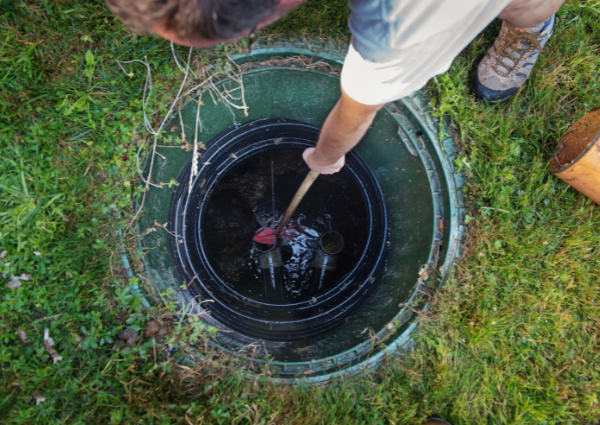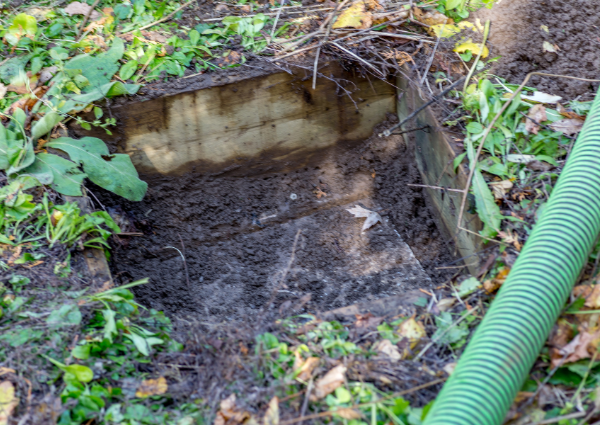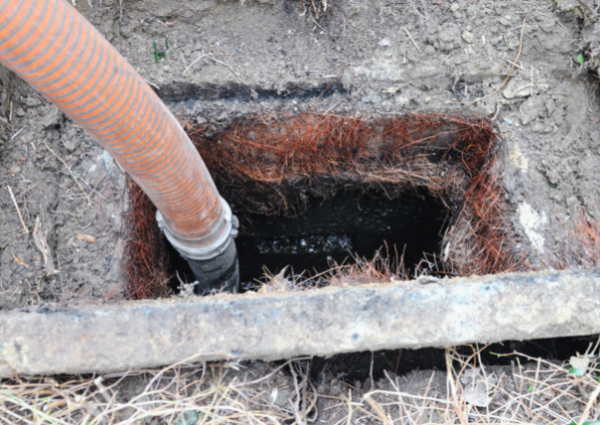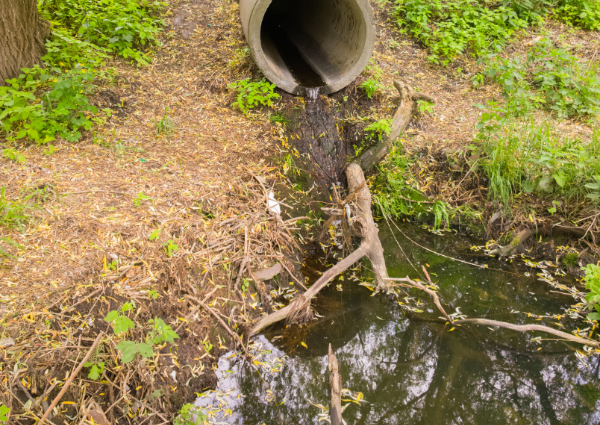
The septic tank is probably the last thing on your mind when it comes to home maintenance. However, it provides a valuable service, and when you find septic tank leaks, it helps to know what to do.
In this article, we’ll discuss the signs of septic tank leaking and give you helpful tips on how to fix them.
What Is a Septic System?
Septic tanks are underground systems that receive household wastewater and treat it partially before it travels down the sewer line. Here, most solid waste is removed.
5 Signs Of Septic Tank Leaking
Here are some tell-tale signs that your tank leaks:
1. You Smell Sewer Gasses
Suppose you smell sewer waste. In that case, your septic tank lid may be broken or misaligned. This can be the riser or the cover of the filter access port. These sewage gasses may also be leaking from the tank body, indicating that there are holes or cracks.
You might notice the smell for a short period or a long time. Determine the precise location of the smells. Is it close to the drain field or the tank itself? Could it be coming from your neighbor’s tank?
2. Standing Water
When exposed to moisture over time, the soil tends to compact. If a tank leaks, the water from the hole or crack can cause the soil close to the tank to settle. Surface water from rainfall and irrigation systems can collect or stand when the soil settles and drops.
3. A Soggy Backyard
If the area surrounding a tank seems damp, water from the tank could be seeping out of the ground. However, keep in mind that this can also be caused by your sprinkler system. Always check this first before investigating a possible tank leak.
4. An Alarm Goes Off
New septic systems have alarms designed to notify a homeowner when there is a leak in the tank. These alarms are typically located inside or outside the home. They either make a beeping sound or flash a red light.
5. Lush Vegetation

Another indication that there is a leak is lush vegetation. The septic system could be overflowing, septic pipes may have been damaged, or both. The surface around the tank or drain field could become wet if the filters or drain field are clogged, which will encourage more vegetation to grow.
[Read: How to Unclog Septic Tank Safely: Tips and Tricks]
Tips on How to Fix Septic Tank Leaks
Follow these tips to fix most septic tanks with a leak.
Don’t Pump Water from the Tank Right Away

Although it can be tempting, wait a little while before getting the tank pumped. It will likely contain bacteria you don’t want to walk through and waterborne diseases that are easily contagious since septic systems treat wastewater.
[Read: How Often Should A Septic Tank Be Pumped?]
Investigate the Septic Tank Problems
You will get to know your tank or sewer lines if you don’t already. Determine the location of the tank on your property and mark it.
Because water may be seeping from this spot or another place in the system, this is an essential step in identifying the cause of septic system issues. You can determine the depth of the drain field from this point on by driving a metal rod into the ground.
Usually, the surface of a tank is about two to three feet above the ground. If you inspect the drain field and septic tank along the way, you’ll likely find issues.
[Read: 5 Signs You Should Call The Plumber Right Now]
Measure the Depth of the Groundwater
Measure the depth of the groundwater. You can use an auger to drill a hole or a soil probe to do this. Simply use the septic tank as a holding tank if you find that the top of it is at least three feet above the water table, but the drain field is still wet or waterlogged.
Reduce Water Usage
You should use less water when the system is functional once again. Even a faucet that drips just one drop every 10 seconds over time will fill the tank with a significant amount of water.
Frequently Asked Questions

1. What does it mean when your septic tank is leaking?
A leak means that the tank has possibly overflowed or that there are damaged pipes that need to be repaired.
2. What are the signs of a leaking septic tank?
Lush vegetation, a soggy backyard, an alarm, standing water, and foul odors are tell-tale signs of a leak.
3. What are the risks of leaking septic tanks?
A leaking tank could contaminate your drinking water, causing severe illnesses, including dysentery and hepatitis.
4. Why is the ground wet around my tank?
There could be several causes if the area around your tank is damp. It could indicate an issue with your drain field or the underground plumbing system used to filter pollutants and other impurities out of the wastewater leaving your septic system.
[Related: How Much Does Septic Tank Repair Cost in Arizona?]
Contact an Experienced Plumber
Trying to figure out what caused your septic system failures isn’t just challenging, it’s also hard work. What’s more, your tank may be different from someone else’s, so what worked for them may not necessarily work for you.
Tree roots may also pose a problem when it comes to these systems. This is because tree roots tend to find pipes and work their way inward, making the repair more challenging. At Stellar Plumbing, we have been dealing with leaky tanks for over 20 years, so there’s nothing we haven’t seen.
Learn more about our residential and commercial plumbing services and schedule an inspection with our plumbers today!
